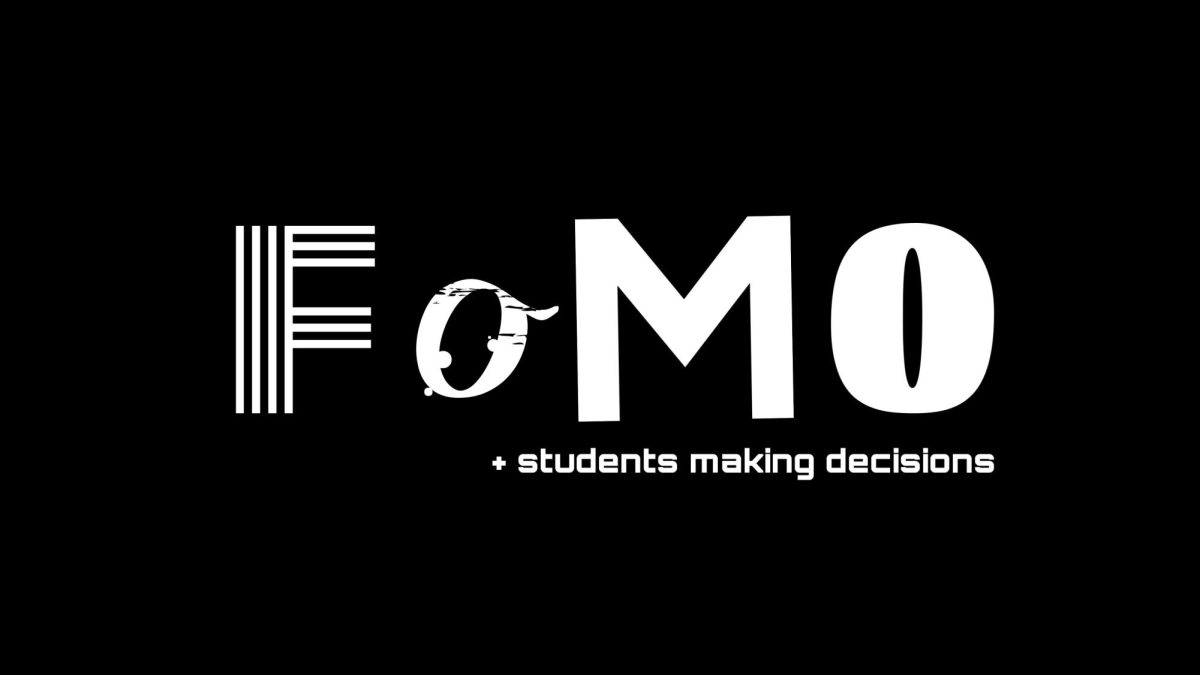Applying for colleges is nothing out of the norm for high school seniors. Jonathan Rangel, a senior at San Rafael High School, entered the college application ring hoping to get into some state colleges.
He successfully applied and got accepted to most of the colleges that he wanted to. Among the schools that accepted him were UC-Riverside and San Diego State University. After seeing the exciting results, Jonathan had to play the waiting game to see how much aid that both FAFSA and the school would give him.
He was more or less disappointed with the results. “I really wanted to go to these state schools,” Jonathan says, “But after looking at how much I still would need to pay I was like, f**k, I might just do community college.”
Jonathon entered a new phase. Would he be willing to pay up front thousands of dollars to attend one of these state schools? Should he borrow student loans and go into debt to attend? Or should he drop the idea and just stay in his hometown to attend a nearby community college?
Jonathan’s ideal plan was to major in mechanical engineering at a four year university. Some of the schools provided good programs and internships that he was interested in. However, he would have to change his degree if he were to attend a community college.
He has to factor in multiple things before making the final decision. One of them is having high expectations from his family. Jonathan’s parents are immigrants from Mexico. He is the eldest child and would potentially be the first one in his family to attend a four year college.
Jonathan has almost straight A’s other than his math class where he proudly has a B. He had spent a considerable amount of time maintaining these grades. He is frustrated that if he were to take the community college route, then all the effort to get these high marks would be in vain.
Money is a huge factor in this final decision. However, another factor in his final decision stems from the fear of missing out.
He would be missing out on the traditional college experience. Historically speaking, many people enroll in four year universities to get the romanticized-like American college experience. It is a chance to leave their parents to live out on their own. It is a new environment where people can explore and find new interests and to develop their character and to build a bigger network of connections.

Kai Carlin, who is a senior at SRHS, is a huge advocate of community college. He proudly waved his crudely drawn College of Marin [COM] poster to his peers during a college admitted day that the school sponsored. “Hey, do COM for two years and have no debt,” he would say to others who brought up the subject. However, he too admits that a huge negative of doing COM would be that he would miss out on the traditional college experience.
The fear of missing out seems like a new phenomenon among teenagers. If you search up the term on Instagram or Tiktok, you will be flooded with videos and posts about it. More discussion posts have sprung from sites such as Reddit where teenagers vent about this insecurity to others.
The fear of missing out has its own acronym [FoMO] which became integrated into modern linguistic slang for teens.
According to the Oxford dictionary, the fear of missing out is an “anxiety that an exciting or interesting event may be happening elsewhere, often aroused by posts seen on a social media website.”
Examples of this insecurity range between something as small as not being up to date with a new Netflix show to missing out on social meet ups with your friends.
“Dude, I felt that way about deciding not to go to prom,” says Jesus Chable Ake. People can experience FoMO when they are up at night refreshing their page to see if they got notifications on their phone. Others can experience it when they are comparing their lives to others.
The fear of missing out is within human nature. In any civilization, new and old, humans have stuck together, rarely leaving the group on their own.
Although this insecurity was very common, there was no official term used to describe the anxiety. It was often ignored and lumped in with other issues.
It was only until 2004 when the term began to get its modern day meaning. Patrick McGinnis is credited with popularizing the term when he wrote articles about the subject in The Harbus, a business publication from Harvard.
Patrick McGinnis moved to Boston in 2002 to attend Harvard Business School. He wanted to start fresh after losing a lot of money on failed investments and witnessing the collapse of the World Trade Centers. While at this school, he was overwhelmed by the countless opportunities and connections. He felt like he didn’t fit in anywhere and that he became jealous of other students’ successes.
In a podcast with Greg McKeown, he says, “And so I started calling that fear of missing out, shortened it to FoMO […] that was the first time it was ever used on the internet and ten years later, it was in the dictionary.”
The term being popularized is directly in correlation with the rise of the smartphone. During the 90s and early 2000s, people communicated with each other on the internet using online chat rooms. Few people had personal computers or had an accessible way to access one. The popular flip phones at the time couldn’t reach the internet as far as its modern counterpart. With few people online meant less people discussed or vented about their personal issues.
However, Apple introduced their first model of Iphone in 2007, which forever revolutionized the cellphone market. Suddenly, more phone companies adapted and sales skyrocketed.
Suddenly, everyone got their hands on this new technology. According to Statistica, worldwide sales of smartphones in 2007 were around 122,000,000 while sales in 2023 alone reached nearly 1.4 billion.
Smartphones got more people on the online world than all the laggy online chat rooms ever did on computers. With almost everyone having a hand of a smartphone, more people had access to the online world. This would in turn lay the groundwork for the rise of social media usage and soon online discussion about FoMO.
FoMO is directly connected with social media. When people are posting about their livelihoods on the platforms, they expose themselves to other users who may feel envy. Paulina Montes, who works at the Wellness Center at SRHS, believes that there is a connection. She says, “If you are constantly scrolling through pictures of awesome, amazing things you may start to feel like you are missing out.”
The combination of both smartphones and the rise of social media platforms pushed this term onto the mainstream.
Almost everyone knows that teenagers spend an unhealthy amount on their phones. “I don’t even want to say how much time I use, that’s embarrassing,” says Jimmy Quach. When teenagers are on social media sites for large extended time periods, they are more likely to experience FoMO.
Part of the reason why teenagers spend so much time on social media is due to the addictive makeup of the algorithms. Social media companies spend millions finding new ways to get people scrolling and engaged. TikTok’s model of short and accessible videos being accessible with a quick swipe from your finger is a recent example of companies perfecting this addictive model.
People use social media in a variety of different ways. However, a large genre of content creation is posting about your day to day life. Upon pressing on a public profile, you get a glimpse of what others do in their lives.
You are then revealed a plethora of images that make you feel envy. For example, people posting about their road trip up in Santa Rosa, people posting about getting accepted to their dream colleges, posts about their relationships and buying their first new car.
These images are then easily accessible and can lead people to compare themselves to others. Social media and smartphones further fueled the age old desire of always wanting to fit due to fears of missing out.
A high school senior at SRHS who wishes to be anonymous would smoke cannabis and consume mushrooms with his friends. However, he spent most of his senior year sober and got accepted admission to a UC school. He felt distant from his group of friends. “We just didn’t link up that much anymore,” he says. He knew staying sober was the right decision but always felt like he was missing out on spending time with his friends in his final year and was letting them down.
Experiencing FoMO is normal but if unchecked can snowball into other bad habits in your life. Since teenagers spend so much time online, they risk lack of sleep. Teenagers have always been synonymous with having little to no sleep. However, social media and smartphones cemented this stereotype into reality.
The act of staying up to check on notifications from friends or refreshing a page to see memes is FoMO in action.
FoMO also has a connection to decision making, which will be brought up by anyone familiar with the subject. People are always making decisions that lead to doubts and creating what if scenarios. When people think too much about the opportunity cost, they start to feel bad and it affects their mental health.
Sofia Krefting, a junior, says that, “I regret not taking classes that I would have enjoyed and possibly made friends in there.”
Decision making can become really important as it relates to the college process as well. People factor in the fear of missing out when choosing what university they would go to.
Getting the traditional college experience has been drilled into young students and it is hard not to see why. Getting a bachelor degree gives you a significant advantage over someone who doesn’t. The average salary rate with people with college degrees earn more and college years are often looked back as the highlights of one’s life.
However, this final decision is unfortunately handed out during our young adult years. This is why when making the final decision in terms of college, it should be well thought out looking at all the benefits and the negatives. Taking the time to pick the right college or career pathway is critical.
And oftentimes, the issue of FoMO can seem so trivial and insignificant when it comes to small decisions. Orlin McConnell, a junior who played a role in the school’s Mean Girls play, says, “It’s okay to miss out, it’s not going to define who you are.”
Colton Meador, a senior who claims to have the best attendance rate despite barely showing up to class, says that, “I don’t really think FoMO is a really a big issue at all, well, at least for me. Don’t get me wrong though, I could see how it can affect someone.”
Being aware of what FoMO is and keeping it in check is very important to living a functional life. It is a normal feeling that everyone experiences and knowing that it is normal is the first step in tackling this issue. You can never get rid of this feeling and it will stick with you forever. However, just like with depression or anxiety, you can try to mitigate how much it affects you.
If it has been established that social media is connected with FoMO, then limiting social media usage could be a helpful way in dealing with this insecurity. The less you are online, the less likely you are comparing yourself to others. The only downside is that it is extremely demanding to ask teenagers to cut their social media usage. Social media is so integrated in our lives that quitting cold turkey seems pointless.
Life during and after high school can be some of the hardest and most confusing time periods of a person’s life. On top of trying to fit in and maintain good grades, most teenagers of the new generation are being raised by smartphones and social media. The ramifications of which can be easily seen in teenagers’ mental health today.
The term FoMO is going to continue to become more used in daily conversations, both in the online world and in real life. It is always important to take a step back and to realize that you can’t do everything in life, and that sometimes some decisions require sacrifice; whether it be big or small.
Jonathan ultimately came to the decision to attend a local community college doing business administration. He plans on transferring to a four year university and to switch his major. He says, “It sucks but this is the right decision for me.”







































